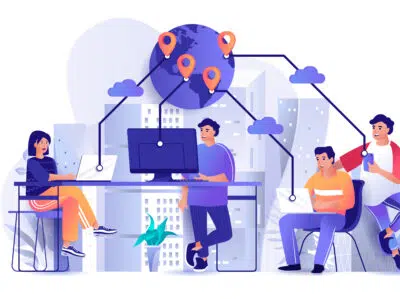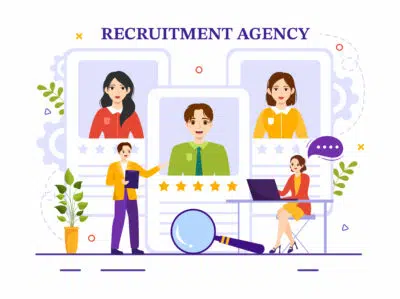Mentorship and sponsorship: Keys to advancing careers for women returnees

Reviving your career: Effective reintegration after a gap
November 28, 2023
International perspectives: Diversity and inclusion in veterans’ services worldwide
November 29, 2023
It’s official. Diversity is not just about giving equal opportunities to women any more. Here are two compelling insights from studies conducted by McKinsey.
- Companies where women are most strongly represented at the board or management level perform the best. (Women Matter, Gender diversity, a corporate performance driver)
- Companies with more than 30% women executives are more likely to outperform others. (Diversity Wins: How Inclusion Matters)
So, embracing diversity is a positive step towards achieving better financial performance while ensuring gender parity. But to have more women executives at higher levels, they must continue and advance in their careers.

Sadly, the current scenario is not encouraging enough. There are quite a few barriers to overcome. Let's look at a few industry trends that indicate the need to bring in urgent initiatives to change the women's workforce scenario.
- The burgeoning gender gap: The Indian female workforce participation rate stood at 23.97% in 2022. Data from the International Labour Organisation (ILO) states that the employability gender gap in India is 50%. We have only 19.2% of women working in paid jobs, compared to 70.1% of men. And the scenario is not very different globally. A recent World Economic Forum (WEF) report says that no country has achieved complete gender parity yet, while some have managed to reduce the gaps. At the current rate of progress, it will take 131 years to close the gender gap! That’s a lot of catching up, indeed.
- The broken rung: A McKinsey report titled Women in the Workplacefound more men getting promoted than women. This trend has led to fewer women in the C-suite, and fewer women are available for promotions at the top. The McKinsey report refers to this problem as the broken rung. We must have an equal number of women available for promotion at all levels to fix this broken rung.
- Dropouts: According to a Returnship Programs in India report from Zinnov, only 17% of Indian women enter a corporate career. Of these, only 3% enter senior management positions; many drop out due to life events such as maternity, caregiving, etc. This gap represents a huge talent pool of experienced professionals. The Zinnov report makes a fair point that organisations can tap into this talent pool to increase women's workforce participation.
So, what’s stopping women returnees from getting back to the workforce?
Women returnees: Barriers and options
Women who drop out of their careers do so due to multiple life events, maternity being just one of them. Women who want to return have many barriers to overcome.
For starters, they must convince themselves to move out of the ‘non-working’ zone they have gotten into. And at times, they will also have to convince the people around them. Once they clear this barrier, they need to identify suitable opportunities matching their skills or figure out if they have missed the bus.
Their fields may have changed due to technological advances. They may have to upskill to be eligible for current opportunities. Also, there may be limitations, like a preference for remote or hybrid work to manage their responsibilities. More importantly, having been away from the industry, they may be unaware of the trends, opportunities, etc.
In summary, women returnees may need help to overcome multiple barriers, such as:
- Lack of confidence
- Lack of industry awareness and latest trends
- Not knowing where to start or how to look for opportunities
- Doing a self-evaluation to pitch for the right roles
Many organisations are trying to make an impact in this area through women's returnship programmes. These returnship programmes help women build confidence, bring them up to speed on industry trends and provide them with resources to upskill and find suitable opportunities. In many ways, the returnship programmes provide women with the much-needed mentoring they need to restart.
But we need to do much more than that. The Zinnov report quoted above says that over a lakh qualified women have left the workforce in the last five years. However, only 2% of them have been able to reintegrate into the workforce, even with the returnship programmes. These programmes need better strategies to improve outreach and impact.
Exclusive career fairs are another option women returnees and employers can leverage. While for employers it is a chance to meet their gender diversity goals, for women it becomes an exclusive platform where they feel comfortable participating. For women returnees, the ability to own and explain their career gaps without being judged is a big plus at such career fairs. Careernet’s diversity and inclusion offerings help organisations plan such events and even help with other diversity strategies.

However, we need to recognise that women need something much more substantial than all these to restart if we hope to actively close the gender gap. And that something happens to be sponsorship and mentorship programs. They are the best bet for women returnees to reintegrate into the workforce.
These options help not just to reintegrate the women returnees but also to retain and advance their careers. The findings of the McKinsey Women Matter study affirm this. It says that coaching, network building and mentoring programmes can be highly effective in enabling women. Even the McKinsey Women in Workplace study says mentoring and sponsorship are the best ways to fix the broken rung. Sponsorship and mentorship should become a key part of the HR process to ensure more women are eligible for promotion at every rung. Ultimately, it will lead to more women on the board and in management roles.
Let’s understand better what these two terms—mentoring and sponsorship—entail.
What is mentorship?
Professional mentorship refers to a relationship wherein a qualified person provides women returnees with the necessary support. The support could be guidance on developing new skills, relevant industry insights and trends to make informed decisions, or making the right connections. Mentorship can also include emotional support to address workplace issues faced by returnees.
Ideally, people need mentorship at every stage of their careers. Some believe mentorship helps only at the start or restart of a career. However, in reality, it is a continuous process, and women can progress to becoming mentors for others even if they are mentees with someone.

While mentorship benefits every professional, it is more so for women returnees.
- Mentoring helps them take the right steps. For example, guidance on whether they should change their career or role, which skills they need to pick up, etc. will go a long way.
- Networking gives women returnees access to much-needed resources. Whether opportunities, returnships or upskilling programmes, webinars and support groups, networking helps open the doors that expand their horizons.
- The various perspectives of mentors help women understand the opportunities at hand better. They can figure out how to use the insights in their favour to make better career decisions.
Many organisations have put in place mechanisms to have formal mentorship programmes. Also, women can opt to have more than one mentor to take guidance on different topics they need help with.
What is sponsorship?
While mentoring is guidance in various forms, sponsorship is a more formal and active form of support. A sponsor is someone who believes in the capabilities of the person they sponsor and is vocal about it. Such vocal support helps women returnees get the required visibility to advance their careers in the right direction. The sponsors are people in influential positions and will have access to multiple resources that can help women returnees. This access and active support can make a big difference to rebooting and advancing the careers of women. Sponsorship also ensures that the contributions of women always get noticed and do not get overlooked for promotions.
When influential people advocate for and promote women returnees, it can help the women overcome many barriers.
Some benefits are listed here:
- It boosts the confidence of the women.
- People are more likely to believe in and consider sponsored women for opportunities.
- It gives women returnees equal or more access to resources to help fight gender discrimination, especially for promotions.
In many organisations, sponsorship is a formal career development programme, which is closely monitored to ensure success. It is devised based on career goals, strengths and interests of individuals.
How can organisations implement mentoring and sponsorship?
Organisations keen to bridge the gender gap can leverage the experienced talent pool of women returnees by implementing mentorship and sponsorship programs.
The key steps include:
- Identifying potential mentors and sponsors across all levels of the organisation
- Identifying women returnees who can benefit from these programmes
- Formally associating with the mentor/mentee or the sponsor/sponsored employees
- Clearly stating and recording expectations as part of the employee career development program
- Ensuring both parties get the necessary support so that the programme is a success
- Monitoring periodically and taking corrective actions where required
When one looks at the big picture of gender diversity and bridging the gap, there is a need for all stakeholders to contribute and work towards identified goals. Mentorship and sponsorship can be the two key differentiators that can help make an impact. Every drop in the ocean counts.
References: jpmorganchase.com,time.com,mckinsey.com,inkling.group,zinnov.com,statista.com,indiatoday.in,mckinsey.com,weforum.org,mckinsey.com


